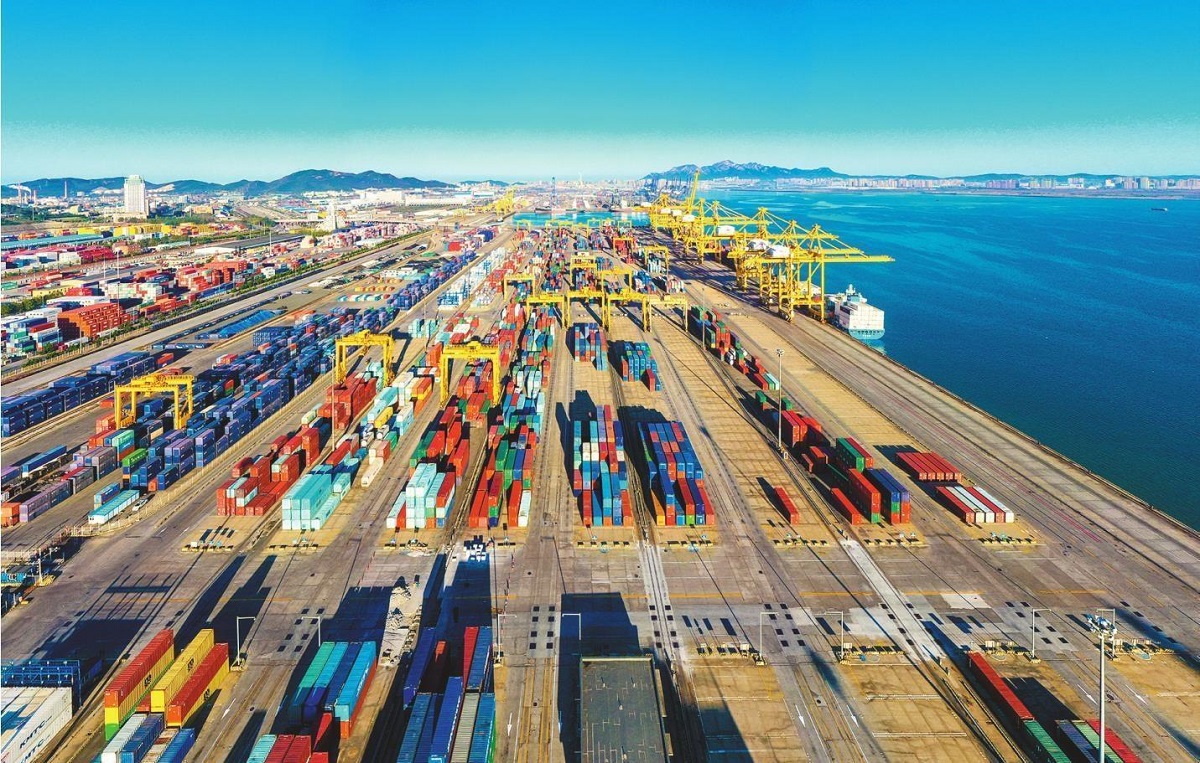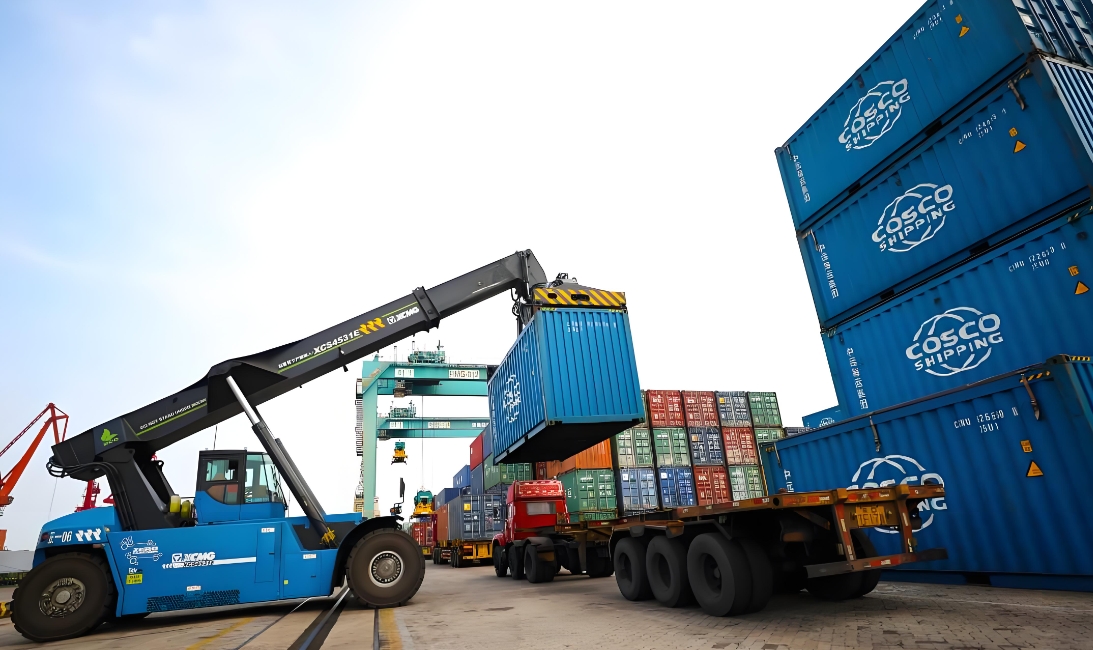How is the Terminal Handling Charge (THC) calculated?
Often underestimated in the realm of international cargo transportation, the Terminal Handling Charge (THC) is a pivotal cost that shippers and freight forwarding professionals must comprehend thoroughly. This article delves into the fundamentals of THC, exploring its meaning, components, and how it's computed. We'll also examine the various methods of THC assessment, the elements that affect its pricing, and its significant role within the context of global commerce.
What is Terminal Handling Charge (THC)?
The Terminal Handling Charge (THC) is an expense levied by terminal operators for the handling of goods at ports, terminals, or container freight stations (CFS). Commonly referred to as container service charges, these fees are specific to maritime shipping. The THC encompasses the expenses related to the transportation of containers within the terminal at both the loading and unloading ports.
This includes but is not limited to the following:
- Unloading and loading of cargo
- Moving and storing cargo within the terminal
- Loading and unloading of containers and other handling work
In short, THC covers all the handling costs of cargo within the terminal and is one of the unavoidable costs in international freight.
How is THC charged?
Terminal Handling Charges (THC) can be charged in several ways, depending on the shipping line, the terminal operator, and the specific trade agreements. Here are the common methods by which THC might be charged:
- Per Container Basis: The most common method is charging a fixed amount per container. This can be based on the size of the container (20-foot, 40-foot, etc.) and whether it is a standard dry cargo container or a special type like a reefer (refrigerated) container.
- Weight or Measurement (W/M): In some cases, THC might be charged based on the weight or volume of the cargo, whichever is greater. This method is less common for standard container shipments but might apply to breakbulk or oversized cargo.
- All-Inclusive Rate: Some shipping lines offer an "all-in" rate that includes the THC in the total ocean freight charge. This can simplify pricing for the shipper, as they do not have to deal with additional charges.
- Flat Rate: A flat rate might be charged for all containers regardless of size or type, although this is less common due to the varying costs associated with handling different types of containers.
- Variable Rate: Some terminals may charge a variable THC that can change based on factors such as congestion at the terminal, the time of year, or special requirements for handling certain types of cargo.
- Direct Billing: The terminal operator may bill the shipping line directly for the THC, and the shipping line then includes this cost in their invoice to the shipper or freight forwarder.
- Collect Charges: In some cases, the THC might be collected from the consignee (the receiver of the goods) upon delivery of the cargo at the destination port.
- Prepaid Charges: Alternatively, the shipper may be responsible for paying the THC before the cargo is loaded onto the vessel at the port of origin.
It's important to note that THC can vary significantly from one terminal to another and can be subject to change without notice. Shippers should always confirm the current THC rates with their freight forwarder or the shipping line before booking cargo to avoid unexpected costs.
THC is usually charged based on the type of container, mainly including the following types:
- 20-foot Container: Ideal for shipping smaller volumes of cargo, it comes with more affordable handling charges.
- 40-foot Container: Designed for transporting larger cargo loads, it incurs higher handling charges.
- Refrigerated (Reefer) Container: Because of the specialized refrigeration equipment and its maintenance requirements, the associated charges are elevated.
THC charging standards
The specific charging standards for THC do not have a fixed value and are affected by the following factors:
(1) Variability Based on Port Location
Terminal Handling Charges can differ substantially across ports. For instance, the THC at prominent Chinese ports like Shanghai and Shenzhen may contrast with those at Jeddah Port in Saudi Arabia, influenced by disparities in operational efficiency and labor expenses.
(2) Container Size and THC Costs
- 20-foot Container THC: Typically ranges from $50 to $100.
- 40-foot Container THC: Usually falls between $100 and $200.
(3) Impact of Cargo Type on THC
The complexity of handling different types of cargo, including the additional precautions required for dangerous goods or the specialized care for refrigerated goods, leads to variations in THC fees.
You may also be interested in: Logistics shipping prices from China to Saudi Arabia
What types of terminal handling charges are there? Who pays them?
Terminal handling charges are an inevitable expense for every shipment, regardless of who is paying. These charges are charged at three locations: the port of departure, the port of destination, and any transshipment ports.
- Origin Terminal Handling Charges (OTHC): charges for port services paid before the vessel leaves the port.
- Destination Terminal Handling Charges (DTHC): charges charged when the cargo arrives at the port of destination.
The accountability for covering Terminal Handling Charges is determined by the shipment terms agreed upon by the parties involved. For instance, with EXW (Ex Works) terms, the onus falls on the buyer to settle THC costs. Conversely, under FOB (Free on Board) terms, it is typically the shipper's obligation to cover these expenses.
In scenarios involving transshipment, the responsibility for THC at the transshipment port is shouldered by the freight carrier. These costs are often integrated into the overall freight rate charged for the service.
The role and importance of THC
Terminal Handling Charges (THC) hold significant importance in the realm of international shipping, with its impact manifesting in several key ways:
- Guaranteeing Safe and Efficient Cargo Handling: THC enables terminal operating companies to deliver expert services that ensure the secure handling of goods during the loading and unloading processes at ports.
- Enhancing Freight Handling Efficiency: The revenue generated from THC allows terminal companies to sustain the smooth functioning of their equipment and workforce, which in turn boosts the efficiency of freight operations.
- Facilitating Transparent Cost Allocation: As an integral component of international freight costs, THC offers shippers a clear and detailed breakdown of transportation expenses, fostering transparency in the shipping process.
How to reduce the cost pressure brought by THC?
Although THC is an inevitable cost in international freight, its impact can be effectively reduced through the following methods:
(1) Choose the right port
Choosing a port with high operating efficiency and transparent charges can avoid additional time and cost expenditures.
(2) Optimize container loading
Ensure container loading efficiency and reduce the number of unnecessary containers, thereby reducing THC costs.
(3) Cooperate with professional freight forwarders
Experienced freight forwarders can help customers develop more efficient transportation plans and minimize costs.
Important Guide to 11 Saudi Arabian Ports
Terminal handling fees for shipping from China to different countries
Shipping from China to Saudi Arabia: Terminal handling fees
The Saudi Arabia is one of China’s main export destinations, and its ports (such as Riyadh, Jeddah, and Dammam ports) charge relatively high THC fees:
- 20ft container: usually between $150-$300
- 40ft container: usually between $200-$400
The elevated Terminal Handling Charges at Saudi Arabia ports can be attributed to several factors, including the high cost of labor and the expense associated with operating and maintaining state-of-the-art equipment. Furthermore, the advanced operational capabilities and rigorous cargo inspection protocols at Saudi Arabia ports contribute to the transparency and justifiability of these fees, underscoring their necessity in ensuring smooth and secure logistics operations.
Shipping from China to UAE: Terminal handling fees
The United Arab Emirates (UAE) is an important hub for global trade, and the Port of Dubai (such as the Port of Jebel Ali) is one of the busiest ports in the Middle East. Its THC charges are as follows:
- 20ft container: about $120-$180
- 40ft container: about $200-$300
The UAE ports have efficient operating procedures and modern equipment, which makes the freight circulation faster, so THC is more cost-effective.
Freight Forwarding Services from China to the UAE
The Terminal Handling Charge (THC) is an indispensable fee encountered when exporting goods from Chinese ports, such as Shanghai and Shenzhen, to Saudi Arabian ports, including Jeddah and Dammam.
For Chinese ports, the THC typically ranges from $80 to $120 for a 20-foot container and from $150 to $200 for a 40-foot container.
In Saudi Arabian ports, the THC fees are subject to fluctuation based on the intricacy of the local terminal operations. Generally, these fees are slightly higher compared to those charged at Chinese ports.
When choosing a carrier and port, working with a professional freight forwarder can help you stay up to date with the latest fees and ensure transparency.
Terminal Handling Charges (THC) are an integral aspect of international freight costs, with their computation influenced by a multitude of factors. Having a clear understanding of what THC entails, the standards for charging, and its significance in the logistics process allows shippers to more accurately forecast and manage their shipping expenses. Whether you're exporting from China to Saudi Arabia or to any other international port, partnering with a seasoned freight forwarder is key to a seamless and efficient logistics operation. For all your shipping needs from China to any part of the world, Presou Logistics is at your service. We promise to deliver professional, transparent services along with detailed and competitive quotations to facilitate your global shipping needs.





